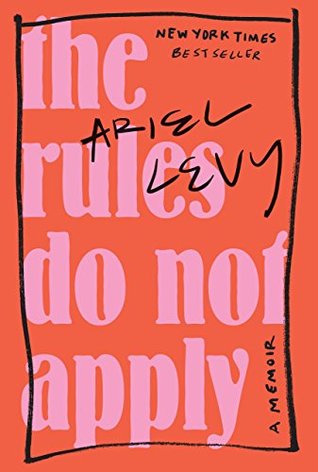More on this book
Community
Kindle Notes & Highlights
My sorrow is so intense it often feels like it will flatten me.
Until recently, I lived in a world where lost things could always be replaced. But it has been made overwhelmingly clear to me now that anything you think is yours by right can vanish, and what you can do about that is nothing at all.
Books are the other natural habitat for a child who loves words and adventures,
Writing is communicating with an unknown intimate who is always available, the way the faithful can turn to God. My lined notebooks were the only place I could say as much as I wanted, whenever I wanted.
There is nothing I love more than traveling to a place where I know nobody, and where everything will be a surprise, and then writing about it.
To become a mother, I feared, was to relinquish your status as the protagonist of your own life. Your questions were answered, your freedom was gone, your path would calcify in front of you. And yet it still pulled at me. Being a professional explorer would become largely impossible if I had a child, but having a kid seemed in many ways like the wildest possible trip.
Anything seemed possible if you had ingenuity, money, and tenacity. But the body doesn’t play by those rules.
Daring to think that the rules do not apply is the mark of a visionary. It’s also a symptom of narcissism.
Why? “I want to do it because I want to do it,” Amelia Earhart once wrote in a letter to her husband. “Women must try to do things as men have tried.”
(But then, strangely, suddenly, there it was: the power to attract erotic attention, a particular kind of admiration. A kind that made you feel feminine—ladylike, even. Too loud, too assertive, too much, too male, is really what I had been told I was for years by teachers, other kids, my extended family. But with the arrival of this new power, I was all woman.)
I wanted what she had wanted, what we all want: everything. We want a mate who feels like family and a lover who is exotic, surprising. We want to be youthful adventurers and middle-aged mothers. We want intimacy and autonomy, safety and stimulation, reassurance and novelty, coziness and thrills. But we can’t have it all.
It was the kind of thing I always wish would happen but rarely does: We were brought into a private world and treated as if we belonged.
The wide-open blue forever had spoken: You control nothing.
When I was young. When I had no idea that all over the city, all over the world, there were people walking around sealed in their own universes of loss, independent solar systems of suffering closed off from the regular world, where things make sense and language is all you need to tell the truth.
In the intervening decades, I’d thought I was going somewhere. But I had just been driving around.
I have an excruciating wish that she would age backward, into a baby, so that I could raise her now. So I could forgive her everything, anything, and love her with all the violence in my heart, and none of the need.
My job is to interpret, and to communicate my interpretation persuasively to other people. The idea that in life, unlike in writing, the drive to analyze and influence might be something worth relinquishing was to me a revelation.
But in a strange way, I am comforted by the truth. Death comes for us. You may get ten minutes on this earth or you may get eighty years but nobody gets out alive. Accepting this rule gives me a funny flicker of peace.
I asked if she’d ever wanted children. She told me, “Everybody doesn’t get everything.” It sounded depressing to me at the time, a statement of defeat. Now admitting it seems like the obvious and essential work of growing up. Everybody doesn’t get everything: as natural and unavoidable as mortality.
I want to be fertile. I never want to expire. But death comes for us. What first? What else? What next? As everything else has fallen apart, what has stayed intact is something I always had, the thing that made me a writer: curiosity. Hope.
Or maybe it was too late, and I had already chosen, inadvertently and incrementally, to be something else. In writing you can always change the ending or delete a chapter that isn’t working. Life is uncooperative, impartial, incontestable.


